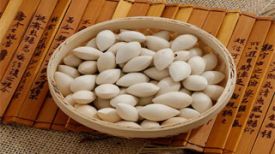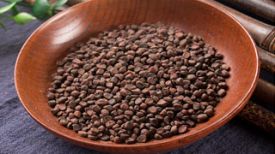1. Medication site: Dry roots.
2. Taste: Sweet and spicy in taste, warm in nature.
3. Meridian return: Return to the liver, heart, and spleen meridians.
4. Effect: Tonify blood and promote blood circulation, regulate menstruation and relieve pain, moisten intestines and relieve constipation.
5. Indications: Used for blood deficiency and yellowing, dizziness and palpitations, menstrual disorders, amenorrhea and dysmenorrhea, deficiency cold and abdominal pain
6. Related compatibility
1. Difficulty in treating bowel movements: Angelica sinensis, Angelica dahurica, etc. are divided into powder, with two coins per serving and rice soup added. (Saint Ji Zonglu)
2. Adjusting Yi Rong Wei, nourishing Qi and blood, treating Chong Ren deficiency and damage, irregular menstrual flow, pain in the navel and abdomen, collapse and leakage, hard blood clots, intermittent pain, cold pregnancy, improper management, restless fetal movement, continuous blood flow, postpartum deficiency, wind cold internal pulsation, persistent lochia, accumulation of nodules, reduced abdominal pain, and occasional coldness and heat: Angelica sinensis (removing reeds, soaking in wine, stir frying), Chuanxiong, white peony, and cooked dried Rehmannia glutinosa (steaming with wine) are divided into equal parts. A total of coarse particles. Take three coins per serving, one and a half cups of water, fry until 80%, remove any residue and heat up. Serve before eating hollow. (Siwu Tang in "Jufang")
3. To treat the blockage of the moon's water in the bedroom: one or two pieces of Angelica sinensis (cut, roasted), half a liang of dried lacquer (stir fried with smoke), and half a liang of Ligusticum chuang. The three tastes are crushed to the end, and the honey and pills are as big as the wutong seeds. Take twenty pills per serving and warm the wine. (Danggui Pill in the "Shengji Zonglu")
4. Treatment for postpartum abdominal pain and abdominal cold hernia deficiency and insufficient labor: three liang of Angelica sinensis, five liang of ginger, and one pound of lamb. Take three flavors, eight liters of water, boil three liters, warm seven times, and three times a day. (Synopsis of the Golden Chamber: Danggui, Ginger, and Lamb Soup)
5. Treatment for restless fetal movement and lower back and abdominal pain during pregnancy: Angelica sinensis half liang (file), scallion white one fen (finely cut). To add two flavors, first boil three cups of water until two cups are cooked. Add one cup of good wine and boil it several times. Remove any residue and divide into three servings. (The Annals of St. Ji's Annals)
6. Treatment for burning sores caused by pouring soup: one or two taels of white wax, four taels of sesame oil, and one or two halves of Angelica sinensis (raw file). First, fry the Angelica sinensis in oil until it turns brown, filter out any impurities, then add wax and wait for it to dissipate. Stir quickly and then put it in a cold magnetic box to collect, and then apply it with a cloth. (The Divine Effect White Cream in "Holy Benevolent Formula")
7. Usage and dosage: 6-12g.
8. Processing: Collect and process, dig at the end of autumn, remove the roots and sediment, wait for the moisture to evaporate slightly, bundle them into small bundles, put them in a shed, and slowly smoke dry with fireworks.
Processing method
1. Angelica sinensis: remove impurities, wash, moisturize, slice thinly, sun dry or dry at low temperature.
2. Liquor Angelica sinensis: Take clean Angelica sinensis slices and stir fry them dry according to the wine roasting method (Appendix IID).
Related discourse
1. According to the Compendium of Materia Medica, "Angelica sinensis has a sweet and heavy taste, which is why it can specifically nourish blood. Its qi is light and spicy, which is why it can also promote blood circulation. There is movement in the process of tonifying, which is a medicinal herb in the blood. It is also a sacred medicine in the blood." "When used in conjunction with tonifying, it can nourish the blood, nourish qi and produce essence, soothe the five internal organs, strengthen the body, and nourish the mind. Any visible and deficient disease is not suitable. When used in conjunction with attacking, it can relieve pain, promote bowel movements, promote muscle and bone function, and treat symptoms such as cramps, paralysis, dryness, and astringency."
2. "Bencao Zhengyi": "Returning to the body is the main way to guard, replenishing inherent skills, returning to the tail is the main way to pass, and removing blood stasis and self examination. Returning to the head has the upward nature, and those who suffer from constipation, blood drowning, collapse, and drenching with yin sinking with yang, should rise steadily and appropriately. If the qi and fire of vomiting blood and bleeding rise and float, they should help to warm up. Isn't it not like a tiger's wings? It is necessary to apply the two words of stopping blood due to symptoms, but not to adhere to the word" stopping "and mistakenly say that it is omnipotent? Moreover, for those who suffer from bleeding, the qi and fire rush, disturb the blood meridians, and do not follow the old path, they actually occupy the majority, and the scent of Angelica sinensis is thick." There is excess in action, and the rules are insufficient. We should not rely too much on the words' what belongs to you 'and be held accountable for the inaccuracy of our names. "


